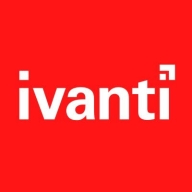

Microsoft Intune and Ivanti Endpoint Manager are competitive products in the domain of endpoint management. Intune has an edge with integration capabilities and a cloud-first approach, while Ivanti excels in robust configuration options.
Features: Intune supports remote and hybrid work environments, integrates with Microsoft 365, and offers cloud-based management. Ivanti provides advanced configuration, enhanced policy control, and broad platform support for complex IT needs.
Ease of Deployment and Customer Service: Intune's cloud-based deployment is efficient within Microsoft ecosystems, backed by strong support. Ivanti, while more challenging to deploy, offers extensive configuration and requires more involvement, but provides robust service.
Pricing and ROI: Intune has lower upfront costs due to its cloud model, offering a cost-effective long-term solution. Ivanti's initial setup is more expensive but promises substantial ROI through its comprehensive features.

Ivanti's All-in-One Endpoint Management solution offers a seamless and comprehensive approach to managing user profiles and all client devices, spanning Windows, macOS, Linux, Chrome OS, and even IoT. With Day Zero support, you can ensure uninterrupted device management. Ivanti provides two key solutions to enhance your organizational operations: Modern Device Management through Ivanti Neurons for UEM, offering a unified view to efficiently manage and secure all devices, and Digital Employee Experience with Ivanti Neurons for Digital Experience, proactively improving productivity, security, and employee retention. This platform also facilitates OS provisioning, software distribution, Mac management, and efficient remote control, reducing resource allocation and enhancing user profile management, all complemented by intuitive dashboards and reporting capabilities. Elevate your endpoint management with Ivanti's comprehensive solution.
Microsoft Intune provides centralized management of mobile devices and applications, ensuring security, compliance, and productivity through integration with Microsoft services like Microsoft 365 and Azure Active Directory.
Organizations use Intune for managing mobile devices and applications, enhancing security and compliance across platforms. With features like single sign-on, conditional access, and zero-touch deployment via Autopilot, it facilitates efficient operations. Intune's scalability, easy enrollment, and capabilities such as remote wipe support diverse device management, offering robust data protection and efficient operation. Despite its features, improvement areas include reporting, compatibility with non-Microsoft devices, and better support for macOS and Linux devices.
What are the key features of Microsoft Intune?
What benefits should users look for in reviews?
In industries such as finance, healthcare, and education, Microsoft Intune is implemented to ensure secure and compliant device management. Companies leverage its capabilities to deploy security policies and manage both corporate-owned and BYOD environments, facilitating a unified approach to data protection and compliance.
We monitor all Unified Endpoint Management (UEM) reviews to prevent fraudulent reviews and keep review quality high. We do not post reviews by company employees or direct competitors. We validate each review for authenticity via cross-reference with LinkedIn, and personal follow-up with the reviewer when necessary.